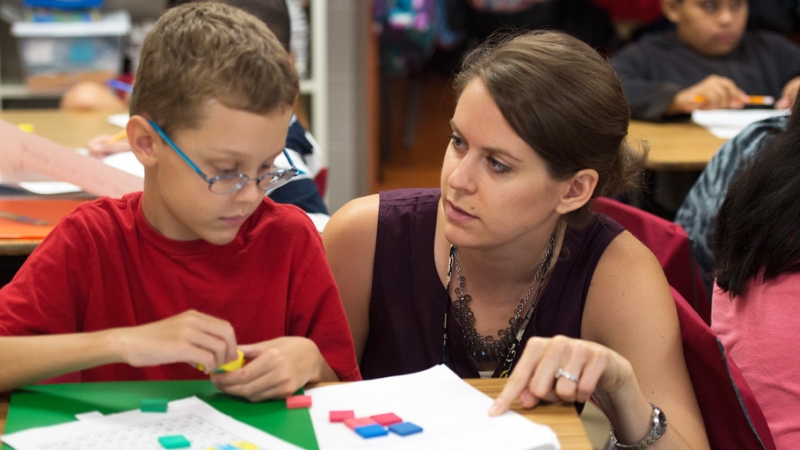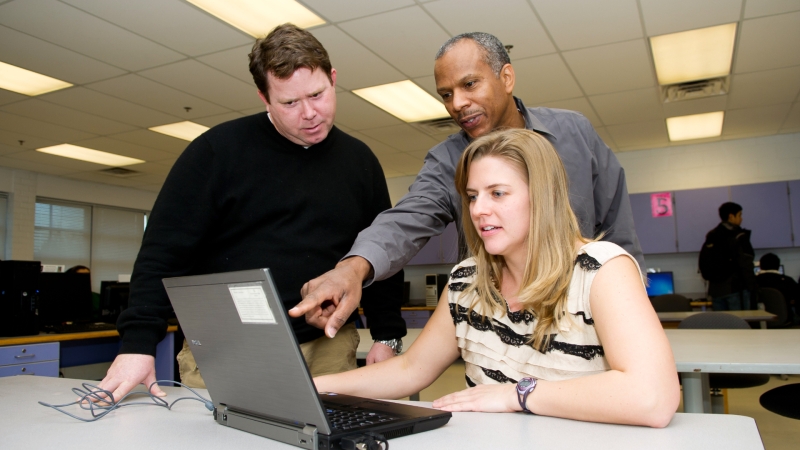
School Leader - Instructional Coaching
Instructional coaches serve in the role of a school leader when they share the school vision, align their professional goals with school and district goals, and share responsibility for the school’s overall success.
[Instructional Coaches] need to shape teams norms, facilitate schoolwide implementation of interventions, promote more constructive styles of professional discourse, motivate unmotivated teachers, raise thorny issues, negotiate resolutions to the conflicts that those thorny issues stir up, and stand in opposition to any action or attitude that is not good for children.
- Joellen Killion and Cindy Harrison; Taking the Lead
The Role of the School Leader:
School leaders share the school vision, align their professional goals with school and district goals, and share responsibility for the school’s overall success. Because coaches are naturally leaders among their peers, taking a more formal role as a school leader gives more opportunities to model teacher leadership and make their work transparent to others who want the opportunity to lead.
- Joellen Killion and Cindy Harrison; Taking the Lead
Here are some ways that FCPS Instructional Coaches serve in this role:
- Serving on many school committees, such as school improvement, responsive instruction, and team and department chairs.
- Supporting school, pyramid, region, and district-wide initiatives.
Building the capacity of our teachers to improve outcomes for children is the single most important thing we can do as leaders of our schools. The targeted knowledge and support of an instructional coach is a strategic resource in this endeavor.
-Merrell Dade, Principal, Forestdale Elementary School

Classroom Supporter
Instructional coaches serve in the role of a classroom supporter when they work inside classrooms to help teachers implement new ideas through demonstration, co-teaching, or observation and feedback.

Instructional Specialist
Instructional coaches serve in the role of an instructional specialist when they work with teachers to plan for high-yield instructional strategies to use in the classroom with students.

Curriculum Specialist
Instructional coaches serve in the role of a curriculum specialist when they collaborate with teachers to develop an understanding around their curriculum in order to provide the best instruction to their students.

Catalyst for Change
Instructional coaches serve in the role of a catalyst for change when they question the status quo, always seeking to provide the best educational experience for students.

Learning Facilitator
Instructional coaches serve in the role of learning facilitators when they train teachers in new instructional strategies, facilitate whole school professional development opportunities, and support the work of collaborative learning teams.

Data Coach
Instructional coaches serve in the role of a data coach when they analyze data to make informed instructional decisions to meet the needs of all learners.

Staff Mentor
Instructional coaches serve in the role of a mentor as they continue to build trusting relationships with the staff in a school to develop partnerships with all stakeholders.

Learner
Instructional coaches serve in the role of a learner who model continual improvement, reflect on their work by seeking and graciously receiving feedback, experimenti with new ideas, and use what they learn to help all teachers and students achieve.

Resource Provider
Instructional coaches serve in the role of a resource provider when they support teachers in developing the knowledge of available resources, such as curriculum and instructional resources.